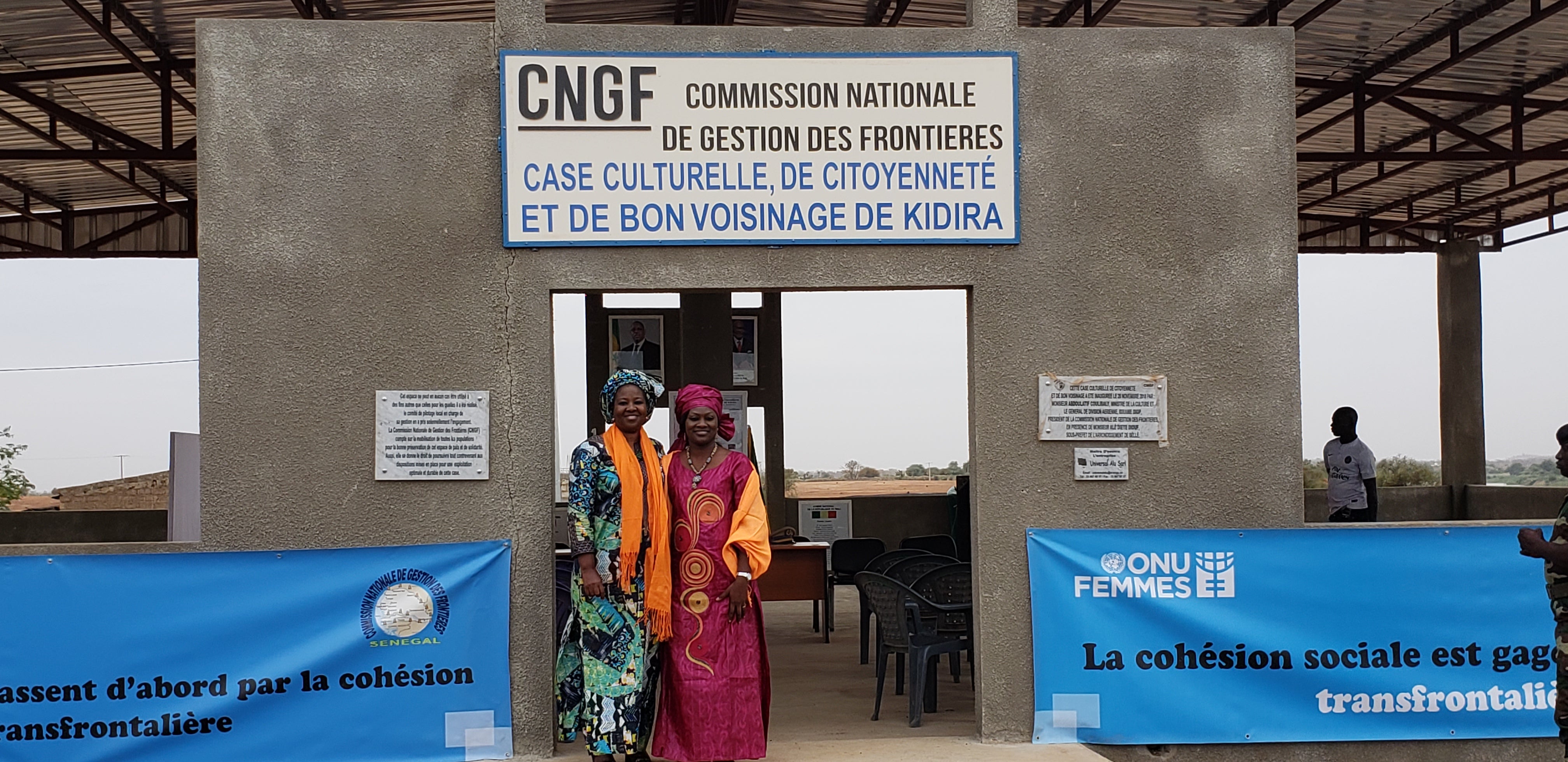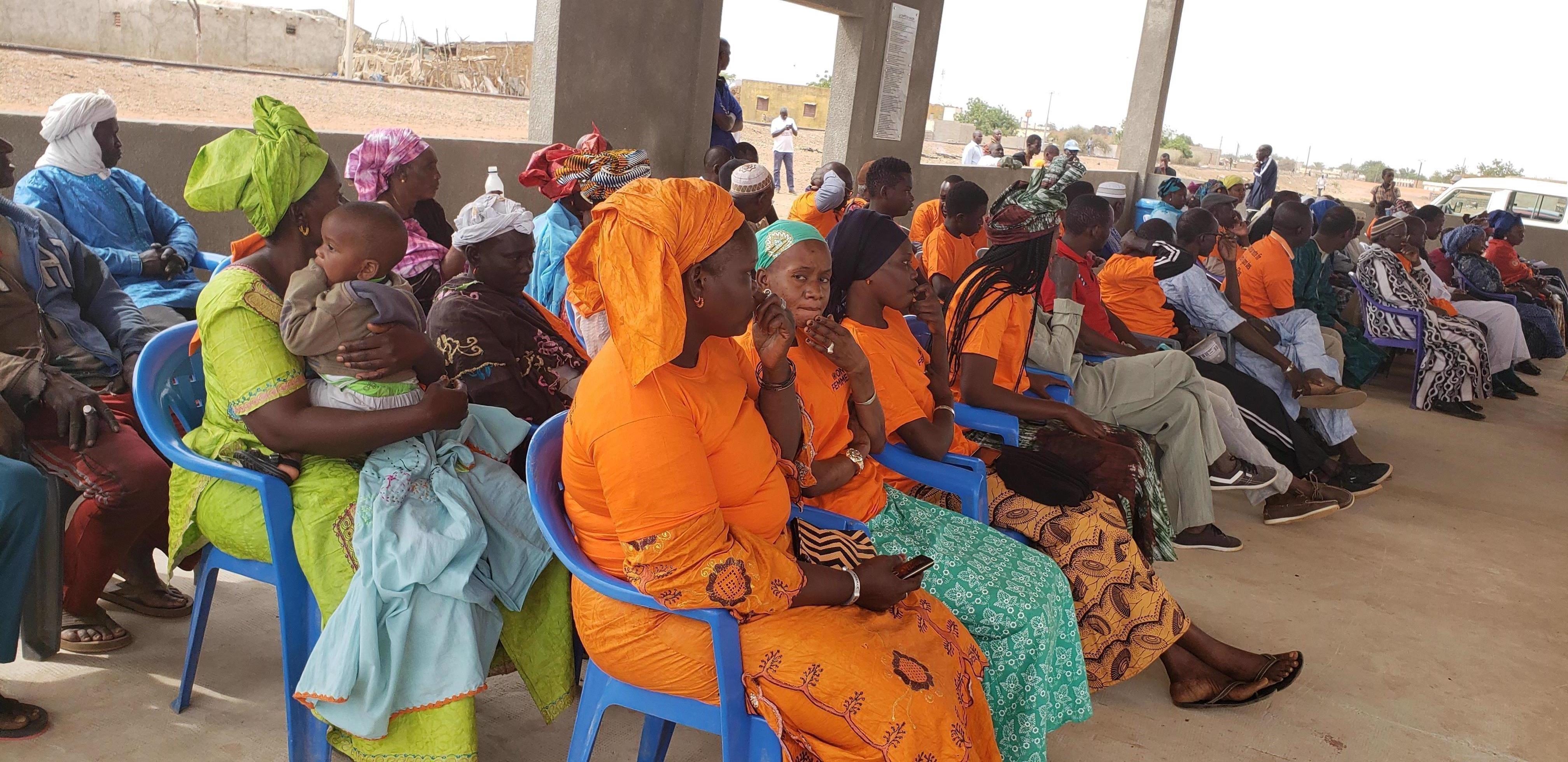Building peace and human security for sustainable and inclusive development with local border communities in Mali and Senegal
Date:

UN Women Regional Office for West and Central Africa (WCAR), in partnership with the Senegalese National Commission for Border Management (CNGF/NCBM), held a two-day capacity-building workshop for border communities in Senegal and Mali on an “integrated border management approach to promoting and sustaining peace and human security for social and economic development”.
This training is part of an effort by the Senegalese NCGF which is currently building a series of Cases Culturelles de Citoyenneté et de Bon Voisinage (Cultural Border Peace Huts). Also called “Case de la Paix”, it is meant for fostering dialogue, sustaining stability, and affirming the importance of social cohesion through promotion of peace and human security in border areas. Four functional Peace Huts have so far been built by the NCBM and more are expected to be completed in other border areas in the months ahead.
The workshop was attended by over 120 participants from both Kidira (Senegal) and Diboli (Mali), including traditional and religious leaders, women and youth as well as local authorities from both towns. Participants were trained on key gender and human rights concepts, leadership, peace and human security, early warning and mainly on the paramount importance of placing women’s participation in peace and security processes at the heart of targeted interventions that address the needs of border communities, including on border management.
Nestled in the eastern Senegal region of Tambacounda, and located at 692 km away from Dakar, Kidira faces Diboli, a small town of the district of Kaye in South Western Mali. Kidira is the main point of passage between Senegal and Mali on the left bank of the Falémé River, off of the Senegal River. The town was an important trade and migration hub as it was once home to a railway station on the Dakar-Bamako line.
Participants reiterated their commitment to sustaining the peaceful environment fostered by generations of leaders that came before them and pledged to put their newly garnered skills towards sustaining peace and human security in this border area. They further emphasized their roles in promoting social cohesion and shared their collective ambitions for their towns and surrounding villages. They identified threats that could jeopardize their vision and reflected on specific ways of addressing those. In a very participatory approach, they laid out a roadmap which identified key activities they wish to undertake in the next 6 months following the training including striving to:
- find a sustainable solution to the serious issue of pollution of the Falémé river which can no longer be used for fishing and irrigation purposes as a result of waste dumping from gold washing;
- reflect on sustainable ways of preventing draining of the Falémé river which is rapidly taking a toll on livelihood;
- support women with training on small business management, development of income generating activities including fabric dyeing and transformation of fruits and vegetables and lastly;
- develop activities around agriculture and enhance cattle breeding for youth.

They also agreed on the importance of holding meetings every three months for stocktaking purposes. For better management of the Peace Hut, and in anticipation to potential threats, organizational capacities of the communities will also be enhanced.
During the training, the President of the Senegalese National Commission for Border Management, the US Ambassador in Senegal and the Coordinator of the UNDP Regional Platform for West and Central Africa paid a visit to the community to explore avenues for expanding the partnership with a view to 1) build additional peace huts in other countries and 2) support efforts towards sustaining peace and security in the region.